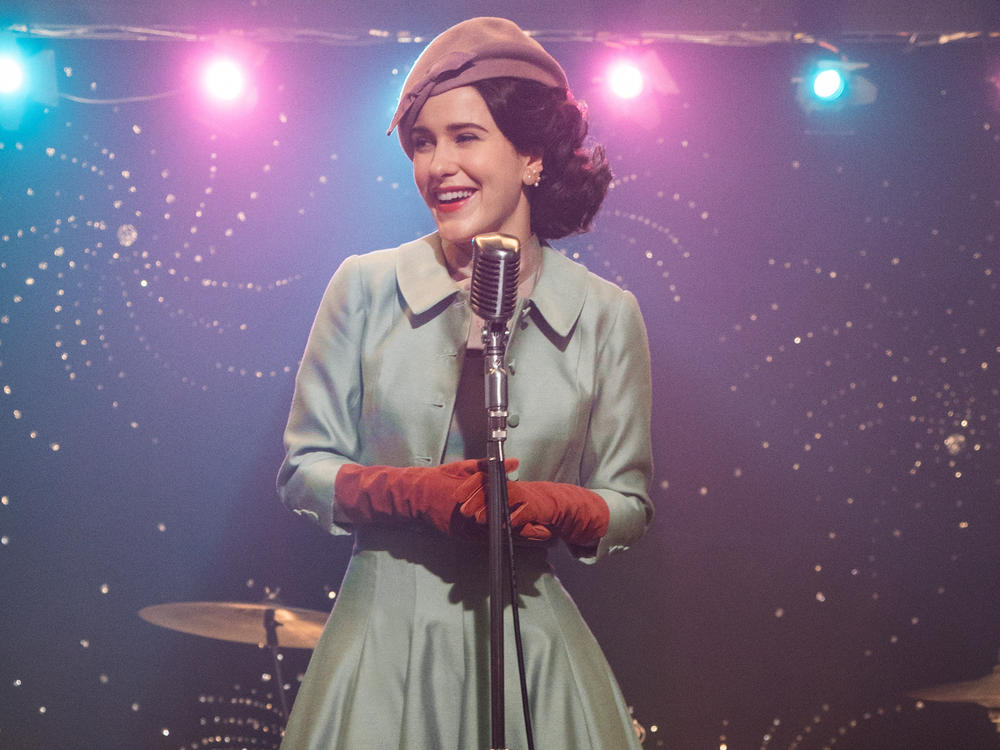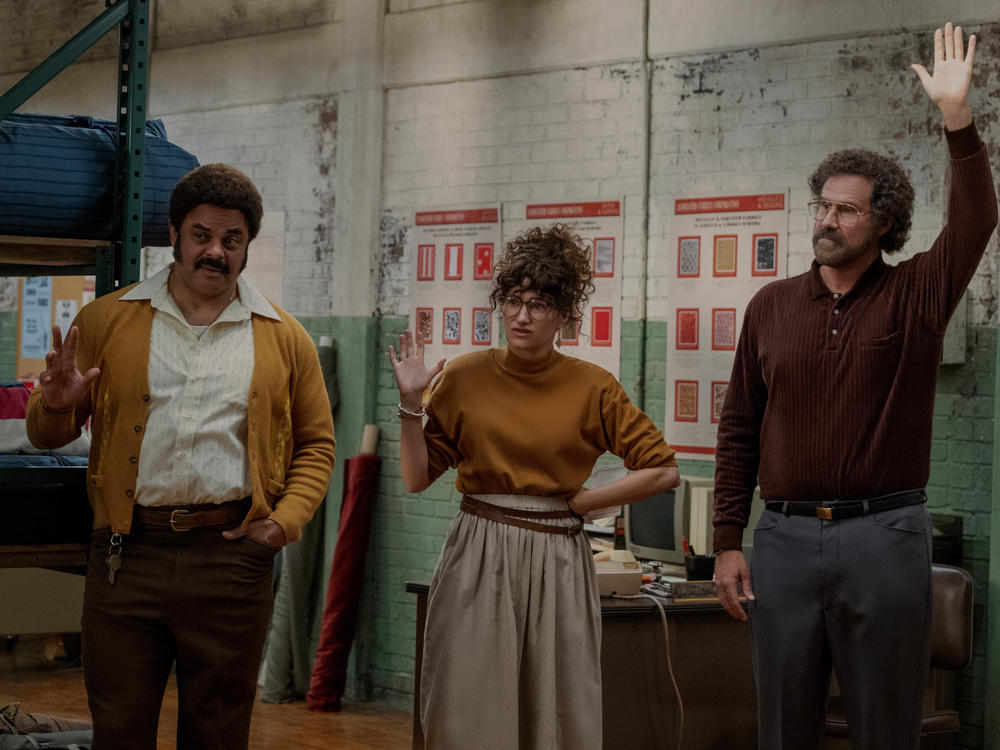Section Branding
Header Content
A new question for an old religion: Should non-Jews play Jewish characters on-screen?
Primary Content
On a new Apple TV+ show called The Shrink Next Door, a depressed and anxious businessman is convinced by his sister to go to therapy.
"He's not a stranger!" she exclaims. "Rabbi Goldberg recommended him!"
Their strong accents reflect who their characters are: New York Jews. But neither of the actors who play them — Will Ferrell and Kathryn Hahn — are Jewish in real life.
Does that matter? It does to comedian Sarah Silverman. On a September episode of her podcast, she pointed out what she sees as an irksome trend of non-Jews playing emphatically ethnic Jewish characters. The list includes Rachel Brosnahan, who stars in The Marvelous Mrs. Maisel, and Felicity Jones as Ruth Bader Ginsburg in the movie On the Basis of Sex.
"Margo Martindale as Bella Abzug. Tracey Ullman as Betty Friedan," Silverman continued, citing the casting of the 2018 miniseries Mrs. America, the actors who played all the siblings in the HBO show Transparent and the casting of Hahn, again, in a now-canceled project about Joan Rivers. "And on and on and on. Rachel McAdams in Disobedience. It really is endless, and none of these actresses are doing anything wrong. But collectively, it's [expletive] up."
There are a few ways to think about this, says Henry Bial, a professor of theater at the University of Kansas who wrote a book called Acting Jewish. Bial points out that Jewish representation in Hollywood is of course historically different from that of Black or Latinx people.
"People of underrepresented subject positions, whether that's queer performers, performers of color, are frequently denied opportunities to play 'universal roles' because of that identity," he says. "So when along comes a role that is specifically written for a queer Latinx performer, it's incredibly insulting and unethical to find someone else, even if they could be just as convincing to take that role. And [this] argument is harder in some ways to make for Jews in our industry because there are so many Jewish performers who have made a living playing roles that aren't particularly Jewish, whether that's Scarlett Johansson or Natalie Portman."
Or Leonard Nimoy, who played a lot of so-called "ethnic roles" early in his career, such as Cherokees, Basques, Mexicans and Italians.
Hollywood and the theater were once marginalized industries, Bial points out, and therefore open to historically marginalized European Jews — who often played other ethnicities — but Jewish representation onstage was for centuries one of antisemitism. The more extreme versions of today's "stage Jew" references old, ugly caricatures.
"I think that the more extreme version, in which the actor seems to be going out of their way to make sure you get that they're Jewish, can be problematic," Bial notes. "Particularly when you start adding in makeup, the false nose. ... That's got a history that [goes] back to when Jewish characters had to wear red wigs on the early modern stage so that we would all understand that Jews are associated with the devil."
"I think most of the time we're not in that neighborhood," he adds. "And I think that in general, if the actor does the homework and is willing to understand what's important about the role, including the accent or the mannerisms, but also just what is at the core of this character, then I don't personally find it to be a big problem."
That said, the trend that annoyed Silverman can be traced back to Charlton Heston playing Moses, or Millie Perkins playing Anne Frank in the 1959 movie (she was cast in part because first choice Audrey Hepburn, also not Jewish, was both unavailable and too old), or even one of the first Jewish characters to anchor a TV sitcom.
"I loved Valerie Harper as Rhoda. You can't take that away from me," Silverman announced on her podcast. Silverman, who was unavailable for further elaboration, is the first to admit her argument is inconsistent. On the podcast, she shared her heartfelt appreciation for the work of non-Jews Kathryn Hahn and Rachel Brosnahan. And she allowed that Jewish women are telling complex, self-actualized stories on film and television, from Barbra Streisand to Amy Schumer to Rachel Bloom to Ilana Glazer.
Representation is important, agrees Kim Williams, president of the Casting Society of America. But, she adds, so are great performances. "There's that fine line of wanting to be as authentic as we can, but also wanting to be open to the creativity we can bring to a project," she says — meaning being open to casting a great non-Jewish actor as a great Jewish character.
Even Silverman says a non-Jew was cast to play her own mother in an upcoming musical based on her memoir, The Bedwetter — because she was simply the best actor for the job.
The issue of who plays Jews is one Henry Bial has studied for a very long time, and he has come to a conclusion.
"The debate itself is arguably very Jewish," he says. "Arguments about who's Jewish and who's Jewish enough to play the roles go way back."
Maybe even back 4,000 years of Judaism. Bial says these kinds of arguments are part of a long and honorable tradition of learned dissent and a way to build community.
Copyright 2021 NPR. To see more, visit https://www.npr.org.


